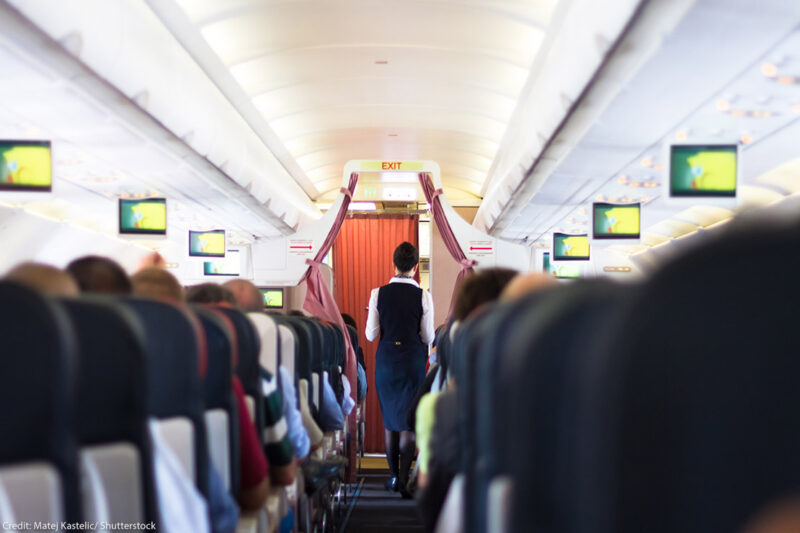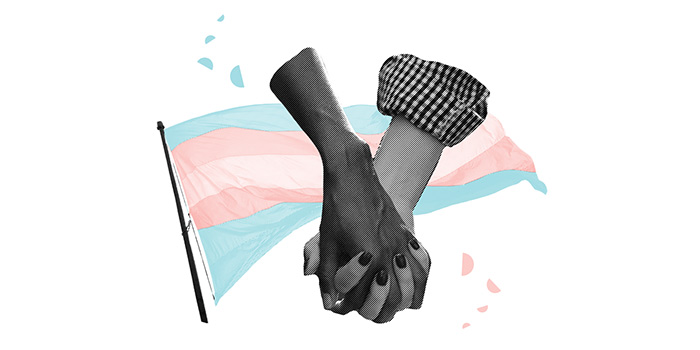Breaking the Mold: Gender Discrimination in the Airline Industry


As a child in New Jersey, I grew up hearing stories of my motherãs flight attendant days in South Korea. A few stuck out to me even at a young age ã such as hearing she needed to maintain a certain weight to get into the flight attendant program and that she had to quit her job once she got married. I couldnãt understand why my mother had to quit her dream job, the job that allowed her to travel to Hawaii and Paris, the two places she had always wanted to go since she was little, just because she got married. My mother also told me how women either lied about being married to keep their jobs or were pressured to quit by their superiors if they were public about their marital status or were pregnant. Although airlines across the world have since rolled back official policies restricting marital status and pregnancy for flight attendants in response to federal civil rights laws, many still perpetuate gender discrimination through dress code restrictions and limitations on lactating.
Unfortunately, what my mother faced as a female flight attendant was common across the globe. The role of women in the airline industry has long been limited to societal constructs of what it means to be ãfeminine.ã Women flight attendants have been hypersexualized through revealing uniforms and advertisements, such as an run by a now discontinued airline in which a flight attendant states, ãIãm Cheryl; Fly me.ã To maintain this public perception of flight attendants as sexually and romantically available, airlines imposed informal and formal restrictions on the height, weight, and age of flight attendants as public imaging and marketing tools. In the 1950s, airlines began to institute mandatory retirement ages for flight attendants, 35 and older, to further reinforce their image of a desirable woman. Flight attendants were fired for getting married or becoming pregnant until the 1970ãs.
Nowadays, we see this sexualization in current ãfemaleã flight attendant uniform policies ã skirt, high heels, tight clothing, low-cut blouses ã which are indicative of the longstanding stereotypes of what it means to be a ãwomanã in the airline industry. Restrictive uniform and grooming policies that reinforce stereotypical categories of ãmaleã or ãfemaleã harm people of all genders, particularly women and nonbinary people. This was the case in Wetherell v. Alaska Airlines, in which a nonbinary flight attendant was required to adhere to an inflexible uniform policy that forced them to conform to rigid gender stereotypes. In May 2023, the ACLU, the äØæÆòÆóçof Washington, and the Washington State Attorney Generalãs Office secured a consent decree against Alaska Airlines, requiring the removal of all gendered restrictions from its uniform policy for flight attendants and additional training on gender identity and gender expression.

Wetherell v. Alaska Airlines
The äØæÆòÆóçand partners represented Justin Wetherell, a flight-attendant and flight-attendant instructor based in Seattle.
Source: äØæÆòÆóç
Dress code restrictions arenãt the only gender discrimination issue that airlines need to work on. New parents in the airline industry need to be able to pump breast milk aboard aircraft during noncritical flight phases. Lactation accommodations are now the norm in many places thanks to landmark legislation including the Providing Urgent Maternal Protections (PUMP) for Nursing Mothers Act of 2022. The PUMP Act guarantees the right to pump at work and provides federal labor protection for new parents in most industries who want to pump milk during their workday without fear of being fired by their employer. But the PUMP Act excluded flight crews, and as a result, airlines have dragged their feet at implementing basic accommodations, forcing their employees to delay pumping due to their flight schedules, resulting in pain, discomfort, and infections, or to stop breastfeeding earlier than they intended.
We have fought to ensure pregnant flight attendants have the right to pump at work. In partnership with the äØæÆòÆóçof Colorado and other organizations, we secured two settlements agreements on behalf of Frontier flight attendants and pilots who had previously been denied pregnancy and breastfeeding accommodations by Frontier. As a result of the settlement, Frontier made important policy changes addressing pregnancy and lactation accommodations on the ground and during flights, including a policy change allowing flight crew to pump breast milk while in the air.
Now that Frontier is leading the way, other airlines should follow suit. Thatãs why we sent a letter to 28 airlines urging them to adopt policies expressly permitting flight crews to pump breast milk aboard an aircraft.
Letter to Airlines: Breastfeeding Accommodations for Flight Crew
Source: äØæÆòÆóç
For those airlines that donãt follow in Frontierãs footsteps, we need the AIR PUMP Act to expand PUMPãs critical protection to flight crews, making clear that all airlines must provide employees who are lactating with the basic accommodations they need, such as pumping during non-critical phases of the flight. But in the meanwhile, weãre very glad to know that thereãs currently a bipartisan effort, in both the House and Senate, to require the Administrator of the Federal Aviation Authority to give written guidance to air carriers so that flight crew members will be able to pump without being penalized.
No working mother should be forced to choose between their job or nursing their child. We applaud Congress for passing the PUMP for Nursing Mothers Act, and now itãs time to finish the job and stand by working parents in the airline industry.


